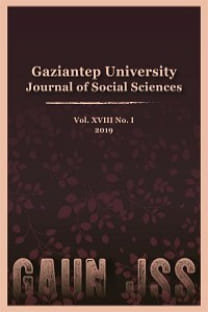Cormac McCarthy’nin Yol Romanında Var Olmanın Etiği
Cormac McCarthy’nin Yol romanı iki isimsiz karakterin, bir baba ve oğulun, sebebi açıklanmayan bir felaketin ardından mahvolmuş Amerikan toprakları üzerindeki yolculuklarını anlatır. Yabancı fakat tekinsiz şekilde tanıdık bir uzamda, titizlikle detaylandırılmış siyasal ve sosyal kurumların tasvir edildiği bilim-kurgu distopyaların aksine, Yol’da betimlenen dünyada herhangi bir uygarlık belirtisi kalmamıştır. Bu bakımdan, anlatıya hayatın gerçeklerini ve anlamını oluşturan sosyo-ekonomik ve kişisel ilişkilerin olmadığı sembolik bir boşluk hakimdir. Bu nedenle, baba ve oğul, sürekli, bir süre önce annenin yaptığı gibi, herşeyden vazgeçip intihar etmek yerine neden hayatta kalmaya mücadele etmeye devam etmeleri gerektiği sorusu ile karşı karşıya gelirler. İkisinin de ortak cevabı, her ne kadar bundan anladıkları aynı olmasa da, “iyi adamlar” oldukları ve “ateşi taşıdıkları”dır. Bu çalışmada, tüm gösterenlerin yok olduğu ve hayatın zamanı geçmiş göstergelerin gölgesinde zar zor sürdürülebildiği bir dünyayı anlatan Yol romanında, aslında postmodern olumsallığı en uç noktasına taşıyarak hayatı anlamlı kılanın ne olduğu ve postmoderm kıyametin ardından var olmanın etik sorumluluğunun ne olduğu sorularının öne sürüldüğü tartışılacaktır.
Anahtar Kelimeler:
Cormac McCarthy, Yol, Kıyamet-sonrası Edebiyatı, Çağdaş Roman, Distopya, Postmodern Etik, Postmodern Roman
Ethics of Being in Cormac McCarthy’s The Road
The Road is a post-apocalyptic novel by Cormac McCarthy, narrating the journey of two unnamed characters, a father and a son, through the devastated American landscape in the aftermath of a catastrophe, the nature of which remains unspecified throughout the narrative. Unlike science-fiction dystopias which present worlds with meticulously detailed political and social institutions in alien yet uncannily familiar settings, the earth is devoid of almost any signs of civilization in The Road. As such, the narrative presents a symbolic vacuum, an absence of socio-economic context and personal ties that constitute the real and help create meaning in life. Hence, constantly confronted with the threat of starvation and violence, the father and the son keep revisiting the question why they should struggle to survive rather than simply give in and commit suicide just as the mother did some time ago. The common answer they give to this question is that they are “the good guys” and they “carry the fire” although it is clear that one’s understanding of these expressions is not necessarily the same as the other’s. I will argue in this paper that, by depicting a world empty of almost all signifieds and life barely sustained in the shadow of outdated signifiers, which can be seen as a means of taking postmodern contingency to its extreme, The Road raises the questions of what makes life meaningful and what is the ethical responsibility of being in the aftermath of postmodern apocalypse.
Keywords:
Cormac McCarthy, The Road, Post-Apocalypse, Contemporary Novel, Dystopia, Postmodern Ethics,
___
- Åström, B. (2018). Post-Feminist fatherhood and the marginalization of the mother in Cormac McCarthy's The Road. Women: A Cultural Review, 29(1), 112-128.
- Derrida, J. (1995). Passions. On the name. (D. Wood, Trans). Stanford, California: Stanford University Press.
- Derrida, J. (2000). Of hospitality. (R. Bowlby, Trans.). Stanford, California: Stanford Universi-ty Press.
- Jurgensen, J. (2009). Hollywood’s Favorite Cowboy-Interview with Cormac McCarthy. Wall Street Journal. 2 March 2019, https://www.wsj.com/articles/SB10001424052748704576204574529703577274572
- Lacan, J. (1998). The seminar of Jacques Lacan: On feminine sexuality, the limits of love and knowledge. Miller, J. A. (Ed.). (B. Fink, Trans.). New York: W.W. Norton
- Lake, C. B. (2017). Christ-Haunted: Theology on The Road. European journal of American studies, 12(3), 1-14.
- Levinas, E. (1999). Alterity and transcendence. London: The Athlone Press.
- Levinas, E. (1985). Ethics and infinity: Conversations with Philippe Nemo. (R. A. Cohen, Trans.). Pittsburgh: Duquesne UP.
- Nancy, J. L. (2000). Being singular plural. (R. D. Richardson and A. E. O’Bryne, Trans.). Stanford, California: Stanford University Press.
- McCarthy, C. (2006). The road. New York: Vintage Books.
- Morgenstern, N. (2014). Postapocalyptic responsibility: Patriarchy at the end of the world in Cormac McCarthy’s The Road. Differences: A Journal of Feminist Cultural Studies, 25(2), 33-61.
- Pudney, E. (2015). Christianity and Cormac McCarthy's The Road, English Studies, 96(3), 293-309.
- Snyder, P. A. (2008). Hospitality in Cormac McCarthy's The Road. The Cormac McCarthy Journal, Vol. 6, Special Issue: The Road, 69-86.
- Søfting, I. A. (2013). Between Dystopia and Utopia: The Post-Apocalyptic Discourse of Cor-mac McCarthy's The Road. English Studies, 94(6), 704-713.
- Wielenberg, E. J. (2010). God, morality, and meaning in Cormac McCarthy’s The Road. The Cormac McCarthy Journal, 8(1), 1-19.
- Zizek, S. (2008). Enjoy your symptom. New York and London: Routledge.
- ISSN: 1303-0094
- Yayın Aralığı: Yılda 4 Sayı
- Başlangıç: 1991
- Yayıncı: Gaziantep Üniv. Sosyal Bilimler Enst.
Sayıdaki Diğer Makaleler
Paolo Bacigalupi’nin Post-Apokaliptik Romanı Kurma Kız’da Nostalji Teması Üzerine
1796: Korku Baladı Britanya’ya Geldiğinde
Kültürel Ağları ve Hoşnutsuzluklarını Haritalama
Öğretmenlik Uygulamalarındaki İkilem Durumları: Aday Öğretmenler Neler Yansıtıyor?
Şeyda Selen ÇİMEN, Şevki KÖMÜR
Ali Smith’in How To Be Both Romanında İkili Anlatı ve Çoğul Bakış Açıları
“Çok Fazla Gerçeği Taşıyalım:” T. S. Eliot’ın ‘Burnt Norton’ Şiirindeki Yabancı
Florence Marryat’ın The Blood of the Vampire Romanında Baş Döndürücü Bir Yüzyıl Sonu
Cormac McCarthy’nin Yol Romanında Var Olmanın Etiği
Shakespeare’in Kral Lear Oyununda Mantığı Terketmek için Kutsal Sebep
